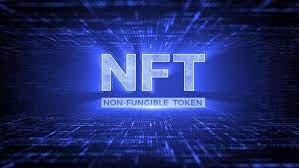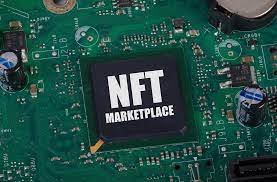What Are NFTs...
The cryptocurrency market is constantly evolving and provides new ways to earn money for everyone, no matter how unethical these methods may be. NTF or “non-fungible tokens” is one such way. Although they’ve been around for several years, the NTF boom started recently and continues to blossom.
To understand how people make money on NFTs, you need to understand what non-fungible tokens are. Tokens are not cryptocurrencies, though they can be sold and purchased for crypto on special platforms. A token is a record in the blockchain that confirms the user’s digital balance in some asset and acts as a security bond in the blockchain. Now, there are fungible and non-fungible tokens. Fungible tokens can be exchanged for other fungible tokens, like USD to GBP. Non-fungible tokens, or NFTs, on the other hand, exist as one-of-a-kind entities that cannot be exchanged or replaceable by another token of the same kind. The NFT code contains information about the author of the product, its current owner, the mechanism of automatic accrual of royalties from future resales, etc. It is impossible to forge such a token. Did you get all that? Good.
The first experiments with NFT began in 2017 — with the Pepe memes posted on the Rare Pepe Directory platform. One of the cards — a portrait of Homer Simpson, stylized as Pepe — soon sold for $500, and about a year later, it was auctioned off for 38,000. Next were CryptoPunks and the game CryptoKitties. The first ones were a bunch of unique characters, while the CryptoKitties was (maybe still is?) a game where people farmed and exchanged NFTs. And look at the market now — everyone’s dipping their toes into NFTs: regular people, collectors, artists, big companies — you name it.
lien: jpg picture https://www.mecalux.fr/blog/nft-logistique

Recently, Christie’s, one of the largest auction houses in the world, was auctioning off digital artist Beeple’s work, with the highest bid being more than $69 million. In general, illustrations, animations, music, elements of computer games, and even land plots are sold under the guise of NFT. The buyers pay for a virtual token, which will certify their ownership of the pictures and make them feel all cozy inside. Then again, you could just right-click and save it, but why use common sense when you can spend millions to have the bragging rights?
It is difficult to understand why someone is willing to pay for a simple image of a cat or a clip of an NBA match that can be watched on YouTube — because all this seems to have no real value. That’s why critics often call the whole field of NFT a bubble that will soon burst.
NFT enthusiasts argue the value lies in exclusivity and compare collecting digital items to old baseball cards, stamps, music records, or other rare objects. Only you can’t actually touch your NFTs. Some wealthy people are willing to pay a fat juicy dollar for the feeling of owning something unique, and that’s their choice.

Over time such digital tokens may be attached to diplomas, driver’s licenses, property rights, and any other documents — basically, anything that involves authentication can be packaged with an NFT. But right now, people are just buying NFT tokens to quickly resell them for a higher price.
While the hype lasts, the NFT market will thrive, but if it dies down, it’s possible that all those memes, images of cats, and virtual NBA cards that cost millions of dollars today, will become worthless tomorrow. So are these tokens worth the hassle? In my opinion — absolutely not. There are simply too many drawbacks, including environmental issues that will have severe consequences for the entire world. Due to how crypto is farmed, NFTs are incredibly harmful to the environment. But that’s a whole different conversation. Just be aware that the more an NFT costs, the more the planet gets polluted.
But at the end of the day, it’s up to you to either help preserve the planet or get rich quickly and doom the future generations.